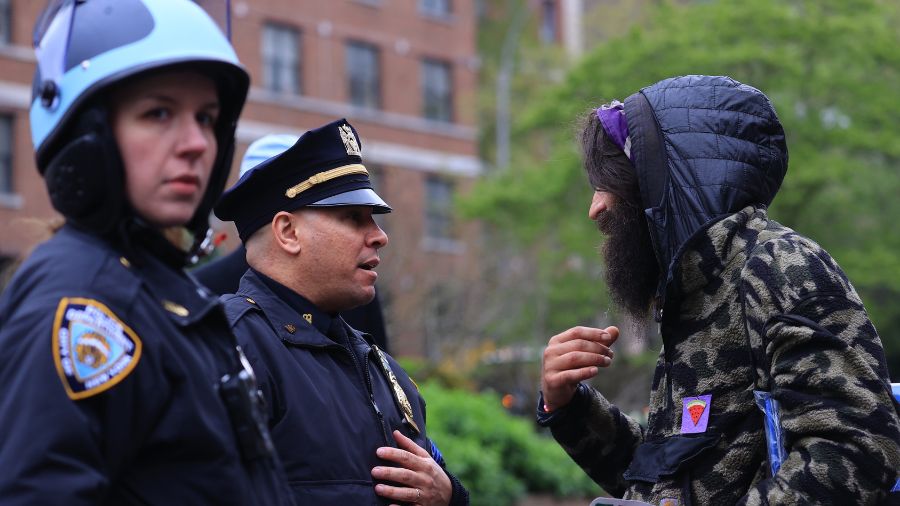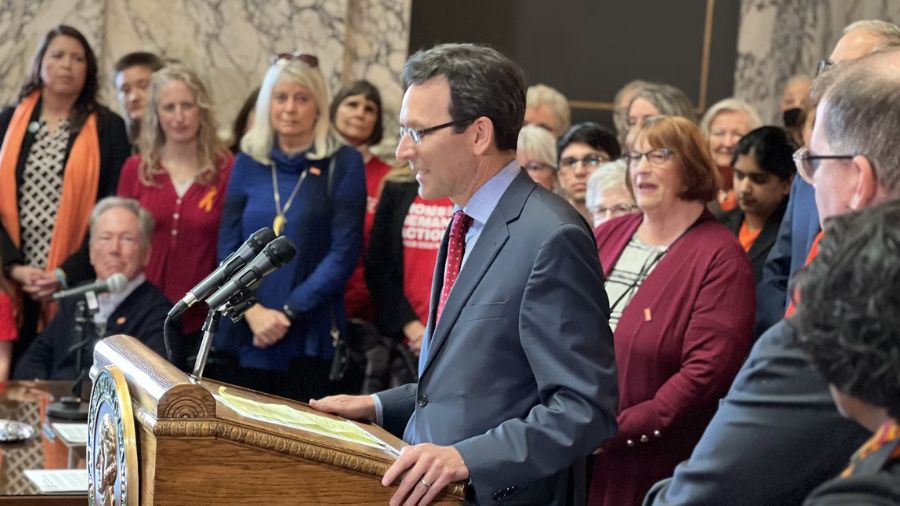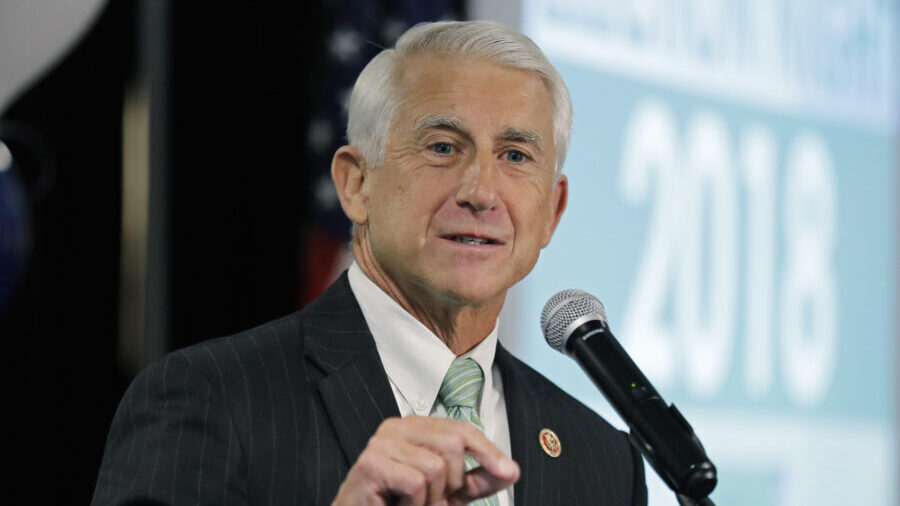Rantz: City of Seattle isn’t answering police non-emergency line, doesn’t track missed calls
Jun 21, 2022, 5:30 PM

(Photo by Ben Birchall/PA Images via Getty Images)
(Photo by Ben Birchall/PA Images via Getty Images)
When you’re a victim of a crime that isn’t an active emergency, such as having your car broken into while on vacation, you’re supposed to call the non-emergency number. But the City of Seattle isn’t picking up the phone in many instances. And the city doesn’t track how many missed calls are coming in when the line is non-operational.
The city’s newly-created Seattle Community Safety and Communications Center Department (CSCC) now handles incoming 911 calls. To help meet the demands of police abolitionists, the Seattle City Council removed the police from handling emergency calls. It was meant to cut the SPD’s budget, while setting the city up for the long-term goal of using social workers to respond to 911 calls.
The transition has been a disaster.
The CSCC lacks enough staff to answer calls, with only 86 of the 125 positions staffed. It’s left residents unable to report non-emergency crimes, with the city sending victims into a maze of non-sensical steps that lead many to give up on reporting the crime. It also will lead to dramatically misleading crime stats.
Rantz: Seattle Fire chief bans ‘brown out’, pretends it’s a racist term
City of Seattle isn’t picking up the phone
Depending on the time of day, you are unlikely to get through to the police non-emergency line.
“I’ve been trying to make a report for days, but I’m in a catch-22,” one Reddit user posted in February, 2022. “I can’t file online because it was on private property (I’ve tried), and I can’t get through to non-emergency because they ‘can’t take calls right now’ due to ‘staffing and other factors.'”
This isn’t a unique problem. Seattleites have long complained they cannot report non-emergency crimes to the SPD. I’ve experienced the same thing.
Over the last three weeks, I’ve called the non-emergency number several times, at different times, and on different days. I’ve yet to get through to a human being.
If they’re technically receiving calls, it’s routed through an automated message acknowledging the staffing shortage before giving you a series of options to report a crime. But then, no one may answer, or the wait is so long that you hang up.
In other cases, it’s turned off completely.
If someone called the non-emergency number at 1:20 p.m. on Tuesday afternoon, they would have received an automated message telling them they won’t have their call answered.
“You’ve reached Seattle’s Community Safety and Communications Center. If this is an emergency, hang up and dial 911. Due to staffing and other limitations, we’re unable to answer calls right now. Please reserve 911 for life safety and emergency purposes,” the message says.
City of Seattle offers questionable data
Though the CSCC has been operational for over a year, it still does not have a permanent public information officer. But the interim strategic advisor, Bill Schrier, did offer some data on how often a call to the non-emergency number is picked up or ignored.
Schrier says that 911 calls will be prioritized over non-emergency calls. When there’s a high volume of 911 calls, it increases the chances that the non-emergency calls will be ignored.
“Typically, the busiest times – and those when the line is not answered – are 11:00 a.m. to 3:00 p.m. weekdays, although, even then, the line is usually available more than 50% of the time,” Schrier says.
Schrier says, with one exception in 2022, the non-emergency line is staffed and accepting calls.
In January, the CSCC did not answer 33.7% of the time. The department saw some improvement in February (28.8%) but didn’t answer half the time in March (50%). April (24.7%) and May (28.9%) saw some improvement over March, but the department still ignored a large number of calls.
I find these stats hard to believe. How likely is it that every time I’ve called the non-emergency in the last three weeks, it’s either been shut off or no one picks up?
City doesn’t track missed calls
The CSCC does not track missed calls when the line is shut down.
“We do not track how many calls are made to [the non-emergency line] when it is not being answered,” Schrier conceded to the Jason Rantz Show on KTTH.
And the way it tracks calls that don’t get picked up is not especially reliable.
“We look at the telephone system – it is a specialized system…,” Schrier noted. “I look for hours in which no calls were received on the 206-625-5011 number and assume it was not being answered for that hour. So, for example, May has 744 hours – 24 hours per day times 31 days. Of those, there were 211 hours with zero non-emergency calls received, or 28.4% of all hours. It is not a perfect system, as, theoretically, there could be hours when no one called 625-5011 even though it was being answered.”
So what are you supposed to do if you have a non-emergency to report and you don’t want to waste the time of the 911 staff? The alternative to the non-emergency number is an online form to report the crime. That form is useful as the non-emergency number.
The non-emergency online form does not work
The City of Seattle allows you to report certain non-emergency crimes online, such as car break-ins, property destruction, drug use, shoplifting, and harassing phone calls. But the form is useless.
If, for example, you’re reporting a theft, the form asks you, “Do you know or have information that could lead to the identification of the suspect?” If you answer yes, it tells you to call the non-emergency line — which will not likely be answered.
You’re then asked, “Was a motor vehicle, licensed trailer, license plates, or temporary license tag stolen? Or was there an attempt to steal a motor vehicle or licensed trailer?” If the answer is yes, you’re told you can’t report this crime online and you must call the non-emergency line. Still, no one will likely answer when you call.
Significant consequences
The city of Seattle is not collecting accurate crime data.
If any data is lower this year than it was in the past, city leaders know they’re downplaying the crime surge because they aren’t picking up potentially hundreds of calls a month. If the data is higher in any category, you can bet it’s also downplaying how bad it is for the same reason: calls aren’t being answered.
There have been countless stories of victims giving up on reporting a non-emergency crime because of the cumbersome and maddening process. Others simply don’t report it because they know nothing will come of it. The city knows we’re not collecting adequate data, but some will use what they have to spin a narrative that serves their political positions or policy goals.
Unfortunately, the erroneous data will be used for political purposes to promote policies or laws wholly disconnected from the reality of Seattle’s crime crisis. That means the issues won’t improve — they’ll only worsen.
When will staffing get better?
It’s unclear how long it will take for the CSCC to be adequately staffed. Schrier, however, is hopeful.
“We are really trying hard to work our way out of this hole…,” Schrier explained. “So far this year – five months – we’ve hired 24 call takers and are on track to hire 24-30 more before the end of the year, a total of at least 48. However, we’ve also lost 17 employees through resignation or termination (failure to get a COVID vaccine, failure to successfully complete training). Most [losses] are resignations because it is such a difficult, high-stress job.”
Schrier says they hire six at a time as there are limitations on training space. ”
“Classes complete a four-week, one-day classroom training followed by six to seven weeks of training with an experienced call-taker on the floor answer[ing] 911 and non-emergency calls. We have 125 authorized positions for call takers, dispatchers, and supervisors, and 105 employees in those positions. Of those 105, 80 are fully qualified and able to operate independently. The other 25 are in training, doing the classroom training, or on an approved leave (parental, medical, etc.),” he noted.
Listen to the Jason Rantz Show weekday afternoons from 3–6 pm on KTTH 770 AM (HD Radio 97.3 FM HD-Channel 3). Subscribe to the podcast here. Follow @JasonRantz on Twitter, Instagram, and Facebook. Check back frequently for more news and analysis.














